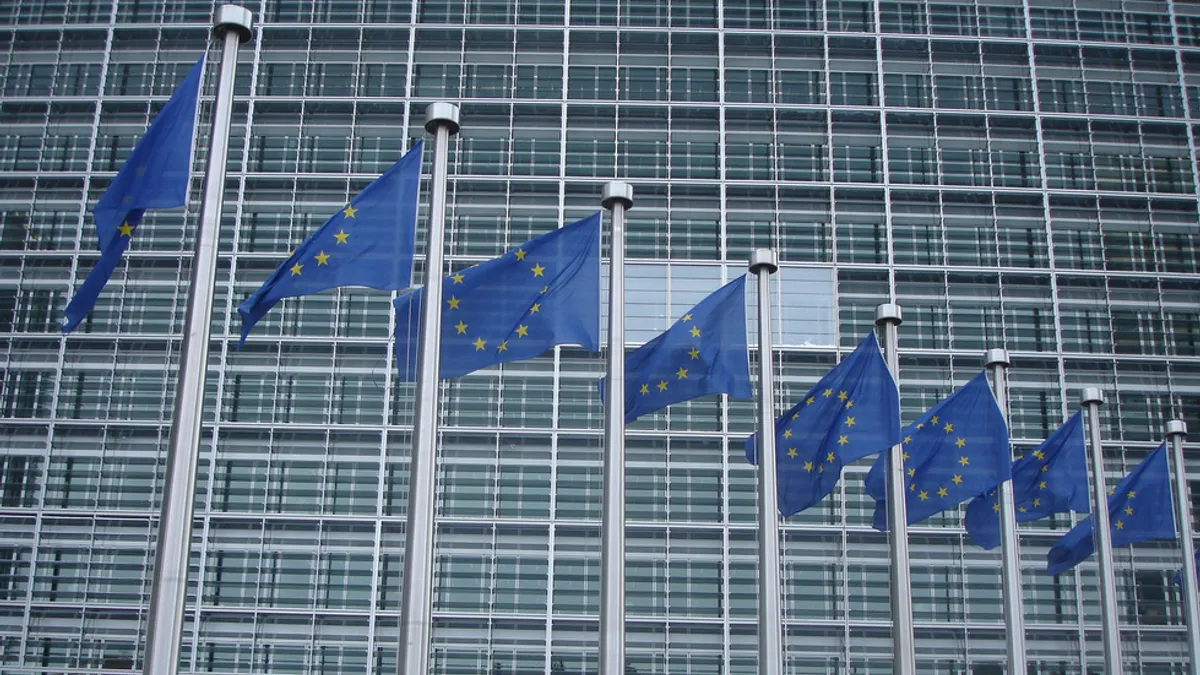Dive Brief:
- The European Commission is taking two countries to court and has put others on notice over a failure to keep up with European Union waste policies, as reported by Waste Management World. One of these countries is Romania, which has reportedly failed to review and adopt new programs for waste management and prevention that were due by 2013 at the latest.
- Slovenia will also be taken to court for its failure to close and rehabilitate 28 illegal landfills. The country was originally asked to do this in 2009, and again in 2016, but hasn't made sufficient progress to meet E.U. standards.
- The commission also put three other countries on notice and warned that their cases could be referred to the European Court of Justice as well if obligations aren't met. Belgium was cited for noncompliance with electronic waste laws that should have been in place by 2014. Finland and Poland were also cited for not fully enacting E.U. waste legislation, specifically relating to energy recovery.
Dive Insight:
The European Commission noted that several other countries have been referred to the court for similar reasons of not measuring up to directives on landfill standards and waste management plans in the past. While the E.U. is often recognized for having more advanced waste policies this is a reminder that some countries have found it harder to achieve compliance than others. The most recent annual data showed diversion rates ranging from Montenegro's 5.4% to Germany's 66.1%. Slovenia rose to third place on that list, with 54.1%, showing that high diversion rates and full environmental compliance don't always go hand in hand.
Another factor to keep in mind is that the methods used to calculate these diversion rates are often different, which may influence how each country is viewed in a standardized system. Though even countries that lead the way by those metrics still have their own challenges. For example, Wales would be the number three recycler in the world if it were its own country, but many younger Welsh residents are still averse to separating their food waste. Overall the U.K.'s numbers are also better than many, but cities such as London still face problems with low plastic bottle recycling rates.
As the European Parliament pursues a new circular economy package with even more aggressive standards and questions remain about how the U.K.'s pending exit will affect their own waste regulations policies, the region's policies may remain in flux for the foreseeable future. Though compared to the U.S., where conversation around national waste policy remains stagnant, some may prefer this type of transitional period toward a more sustainable end goal.















